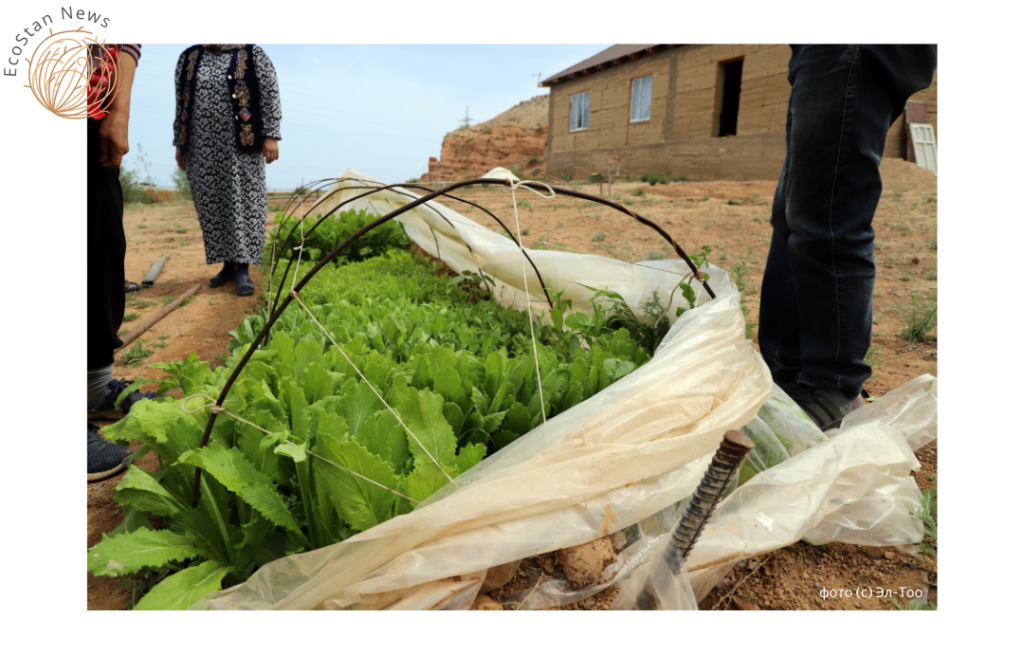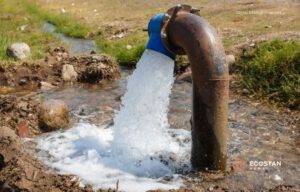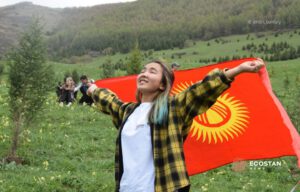There are many environmental NGOs doing great work in Kyrgyzstan, a small mountain country in Central Asia. Of late, I have been particularly fascinated by the activity of an organization called El-Too ("Mountain People" in Kyrgyz). This NGO is based in the Issyk-Kul region, in a village called Bokonbaevo, where, among other activities, they train women and youth how to grow food in a sustainable manner by applying the principles of permaculture. I had the pleasure of talking to Nuraiym, project manager at El-Too, about why the knowledge of permaculture is crucial for our arid region which has already begun to face the impact of climate change.
PHOTO CREDITS: All the photos are taken in 2021 and kindly provided by El-Too.
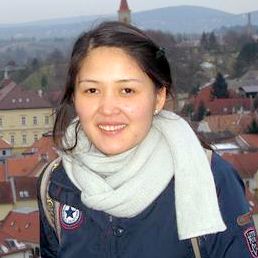
Aliya Wedelich / ECOSTAN: Nuraiym, how big is your team and what kind of personnel does it include? What are the areas of expertise in your NGO?
Nuraiym: Our team is small and consists of four permanent staff members: Bakyt, who was the founder of our foundation back in 2001, is director; Cholpon is our accountant; Nursultan is project assistant; and myself. Our foundation has been active for 19 years now. For such a compact team we have quite a wide range of thematic areas in which we are professionally engaged. Besides promoting permaculture, we also support community-based micro reserves in territories with endangered species of flora and fauna, encourage initiatives in ecological tourism, introduce energy efficient technologies in rural communities, and provide environmental education.
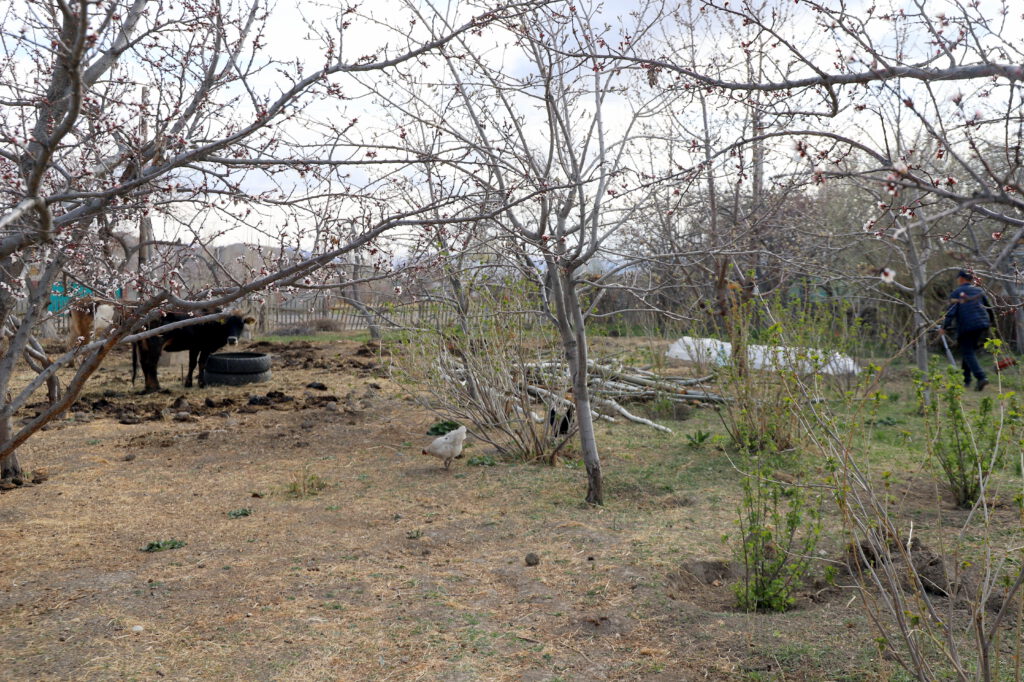
ECOSTAN: What inspired you to start learning and adopting the permaculture approach? How long have you been active in this sphere? Which permaculture principles are, in your view, most important for the soil and climatic conditions in your region?
Nuraiym: We learnt about permaculture from our Spanish friend Simone Ferraretto who visited Kyrgyzstan a few times. He has worked at various permaculture sites around the world, and inspired us to try it too. El-Too only started working on permaculture in March this year. This became possible thanks to support from our Swedish partners: Central Asia Solidarity Groups (and their permaculture experts) and ForumCiv that funds our work. Currently, we have permaculture projects in mountain and semi-desert areas, but we plan to expand these to include other areas facing land degradation. The western part of the Issyk-Kul region, where we are located, receives very little precipitation - from around 200 to 300 mm a year. This area experiences a lack of water for irrigation and also land degradation caused by overgrazing. In such circumstances we still can help local communities grow food in a sustainable fashion. To this end we help them imitate the harmony of nature in their gardens by introducing such permaculture principles and techniques as water retention through mulching (or covering the land with a layer of organic residues or compost), water saving through rainwater collection and drip irrigation, and also soil restoration with the use of self-made humus and by avoiding digging and chemicals.
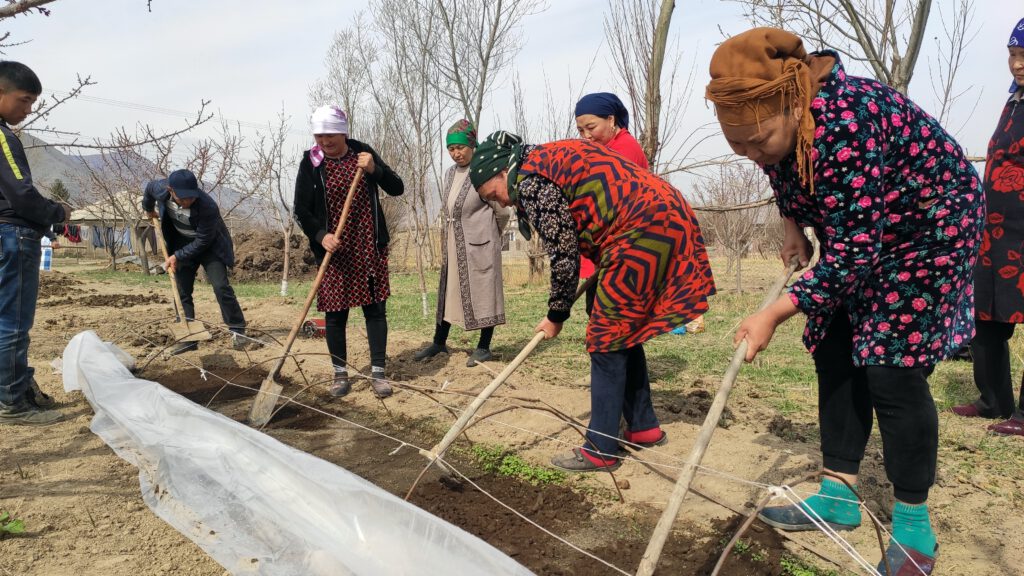
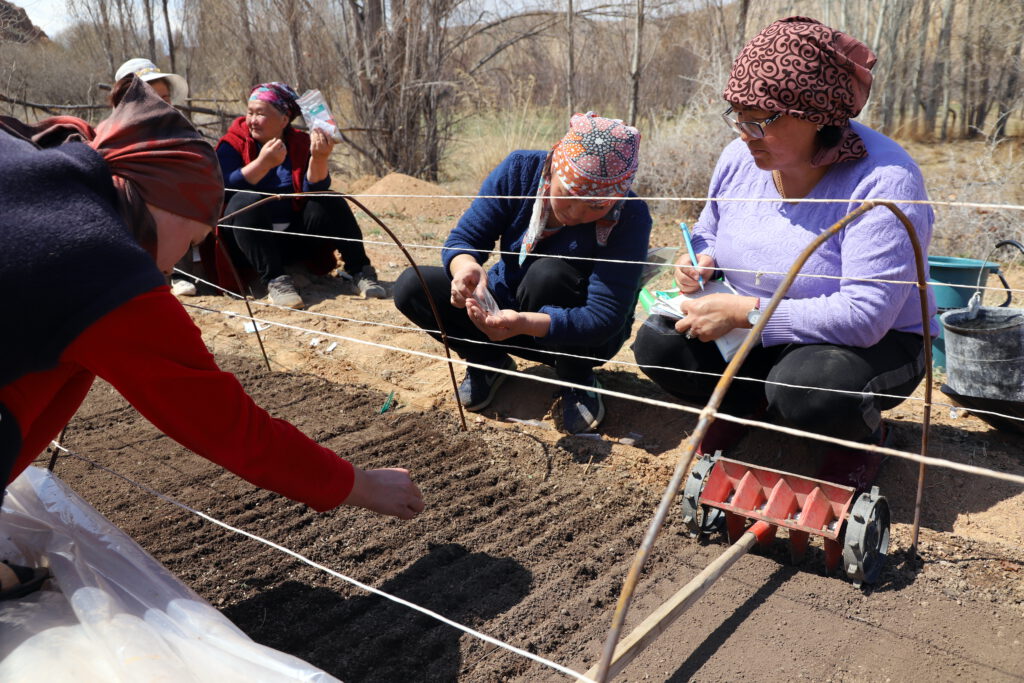
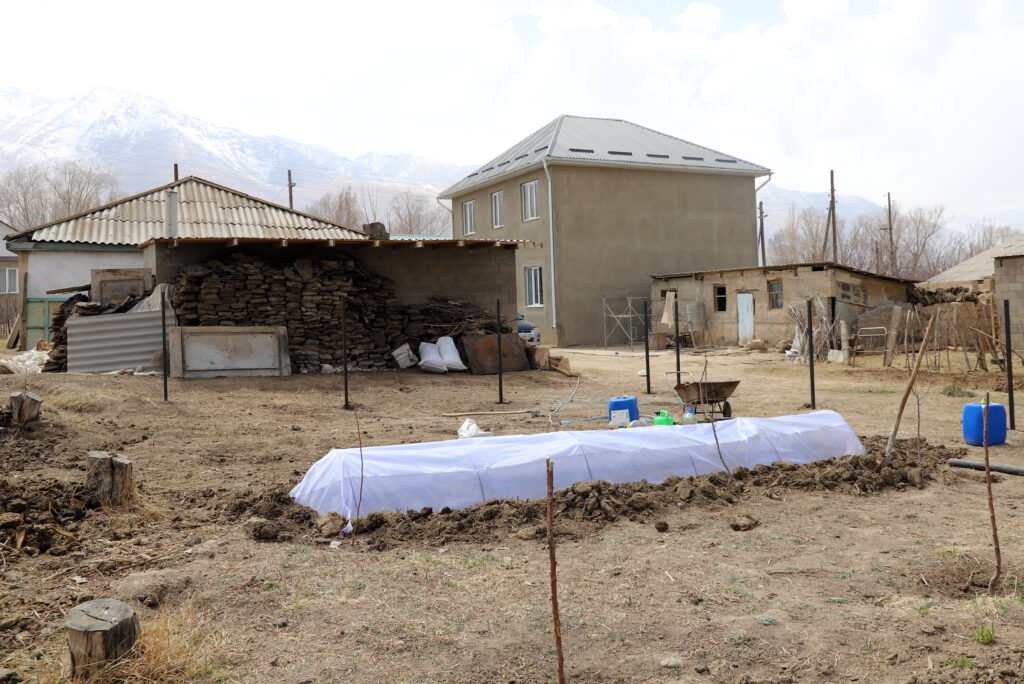
ECOSTAN: In which areas of Kyrgyzstan and to whom do you offer your training?
Nuraiym: This year we offered workshops on permaculture in five villages in the Tong district. They are free of charge for all participants. In particular, we gave five practical seminars to 60 women in these villages. Each workshop included such topics as seed germination, soil preparation, bio humus production, drip irrigation and water saving techniques, as well as the biotechnical treatment of plants. For the same group of women we also organised two master classes on food safety and meal preparation from vegetables we grew together. We also provide legal consultations to women whose households have faced land-related problems, for which they do not have to pay.
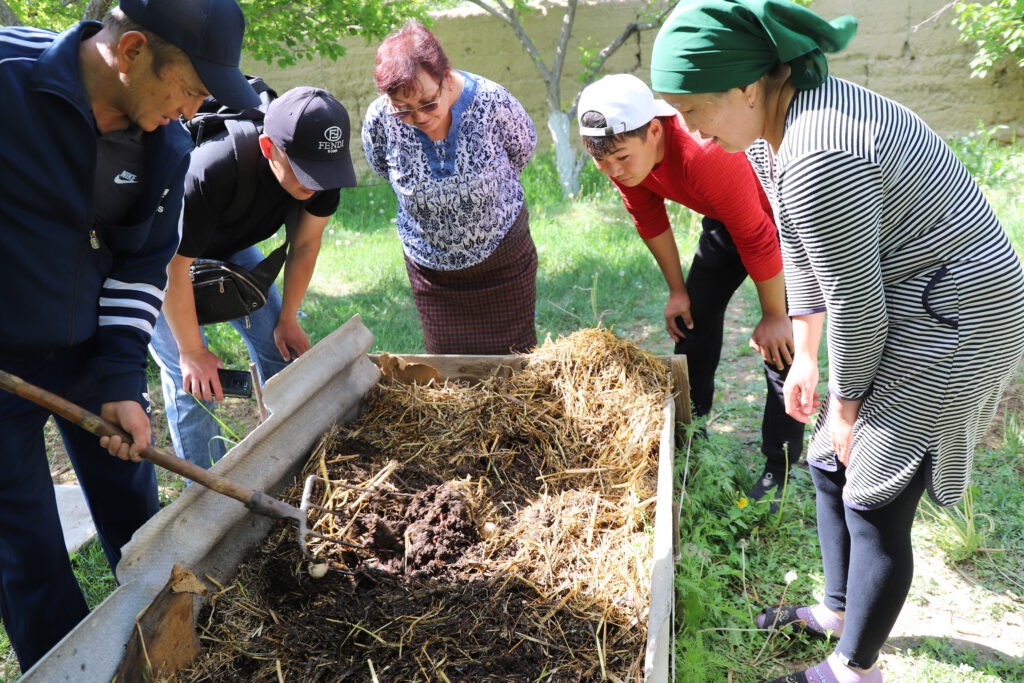

ECOSTAN: Can permaculture be an answer to such global problems as climate change, land degradation and food insecurity, whose negative impacts are already evident in our region and in the Kyrgyz Republic, in particular?
Nuraiym: Yes, this knowledge can be especially crucial for Kyrgyzstan’s rural communities that already suffer from a lack of water and will be even more vulnerable to climate change in the future due to rapid glacial melting. Furthermore, all rural areas lack institutional support, while they use pesticides and other chemical fertilizers which, in turn, lead to soil salinization. In addition, the villages depend only on one economic activity: most people are engaged in free range farming which year by year leads to land degradation. At present, 60 percent of all arable land in Kyrgyzstan is degraded. Permaculture offers a sustainable solution to the self-sufficiency of rural households, diversifies their income and empowers women - not only as agricultural producers but also as rural entrepreneurs. All in all, permaculture can make rural communities more resilient to climate change.
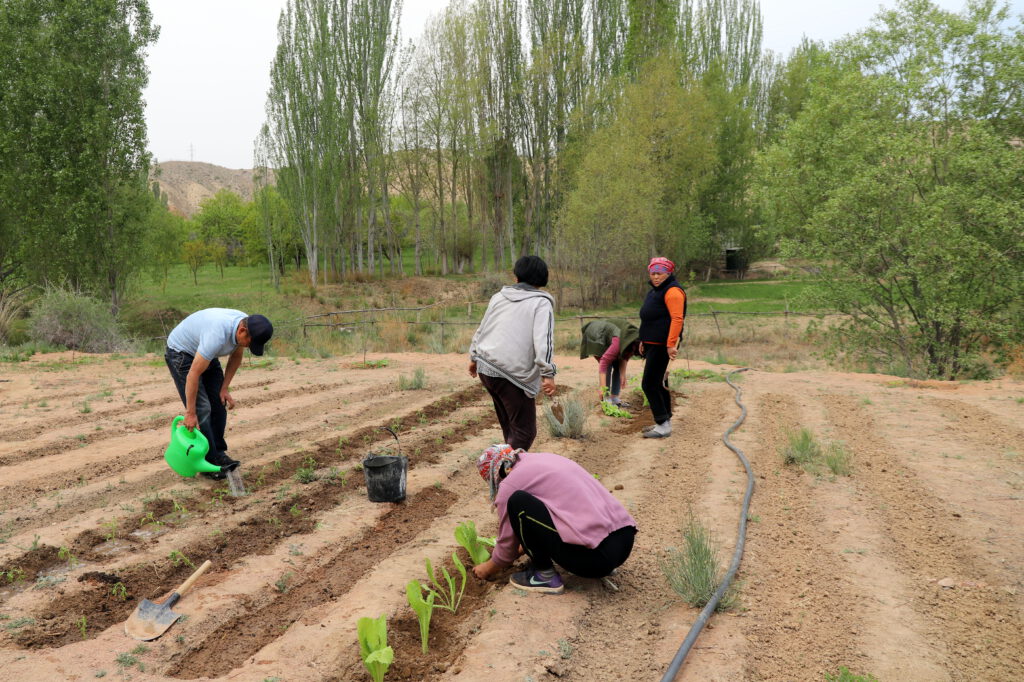

ECOSTAN: How many of those whom you taught have already started their own permaculture gardens? What do they grow there?
Nuraiym: Nearly 90 percent of those 60 women we trained have started their own gardens, and their focus was on developing a kitchen garden, or a garden where plants are grown for consumption in the kitchen rather than for decorative purposes or sale. At an altitude of between 1600 and 2200 metres, they have successfully grown broccoli, cauliflower, Chinese cabbage, tomatoes, cucumbers, rucola, flax, spinach, parsley, capsicums, green peas, salad leaves, carrots, onions, beetroot, some medical herbs and strawberries. These villages were already familiar with carrots, beetroot and garlic as garden plants as well as apricots and apples. Our experiment with various types of cabbages and leafy vegetables (rucola, salad leaves and spinach) turned out to be successful. They learnt how to build small greenhouses, how to compost and produce bio humus with the use of Californian worms, manure and kitchen waste, how to retain water in soil, and how to keep soil healthy in general.
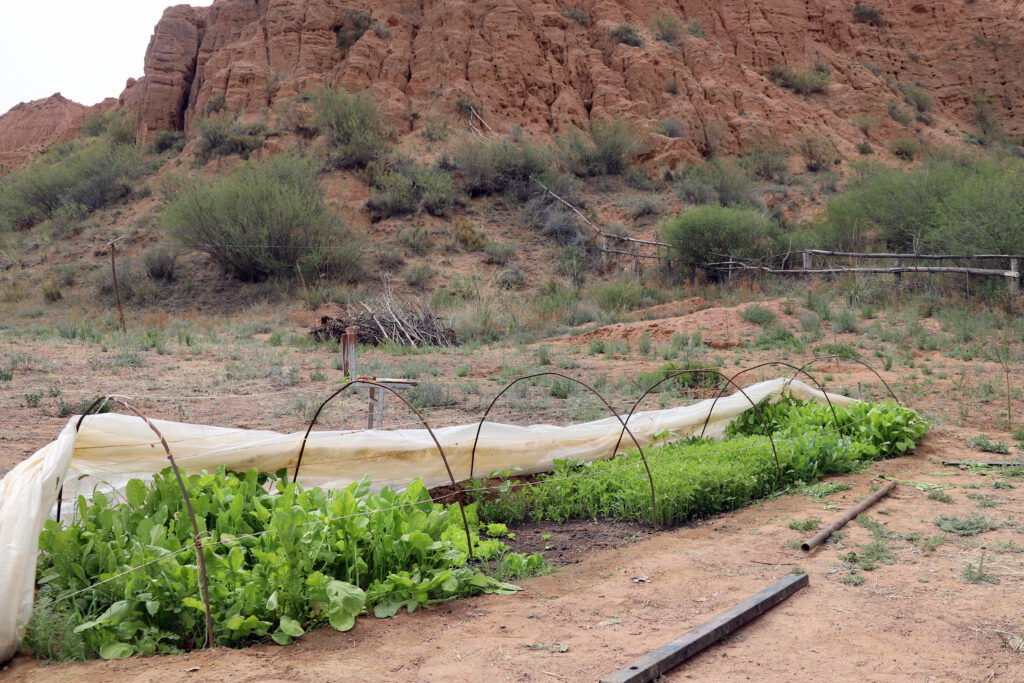
ECOSTAN: If one has a private garden where she/he introduces the principles of permaculture, can their families be self-sufficient in terms of availability of vegetables and fruits in the climatic conditions of northern Kyrgyzstan?
Nuraiym: Our experiment proved that families, even in the harsh climate of Kyrgyzstan, can have self-sufficient kitchen gardens. In villages at 2200 m that took part in our programme, people had the preconceived notion that nothing could grow there except for potatoes. However, our project showed that even strawberries can grow and ripen there. In each village we worked with, as soon as we had something to show, we spread the word through whatsapp groups, and all villagers came to see our results. Our plan for next year is to experiment with more types of fruit.

ECOSTAN: What resources does one need to start their own permaculture garden? How costly would it be for someone who lives in Kyrgyzstan?
Nuraiym: Permaculture can be introduced in any garden. The main thing is that the design of your garden meets your needs and is comfortable for you. Permaculture is based on imitating the harmony of nature. This is why it is useful to follow the principle of good companion planting which will yield healthier plants and more sustainable harvests. For example, tomatoes grow well next to chives and onions, potatoes thrive next to corn and beans. One can use any scrap material to build plant beds and other structures on your allotment. What a permaculture garden really requires is time and dedication. However, one spends much less time taking care of a permaculture garden because, thanks to mulching and other nature-inspired techniques, they produce less weeds and water losses. Purchasing materials for setting up a drip irrigation system (around $100 if we talk about a 500-square-meter plot), seeds and biotechnical products ($10 maximum) need be the only cash outlay you make on your kitchen garden.
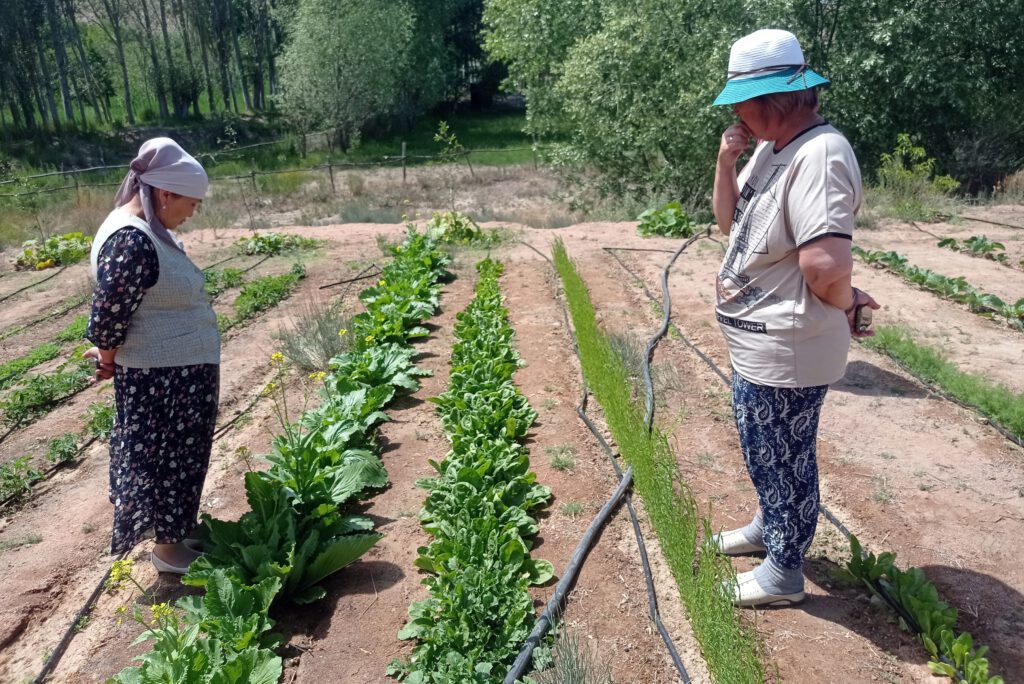
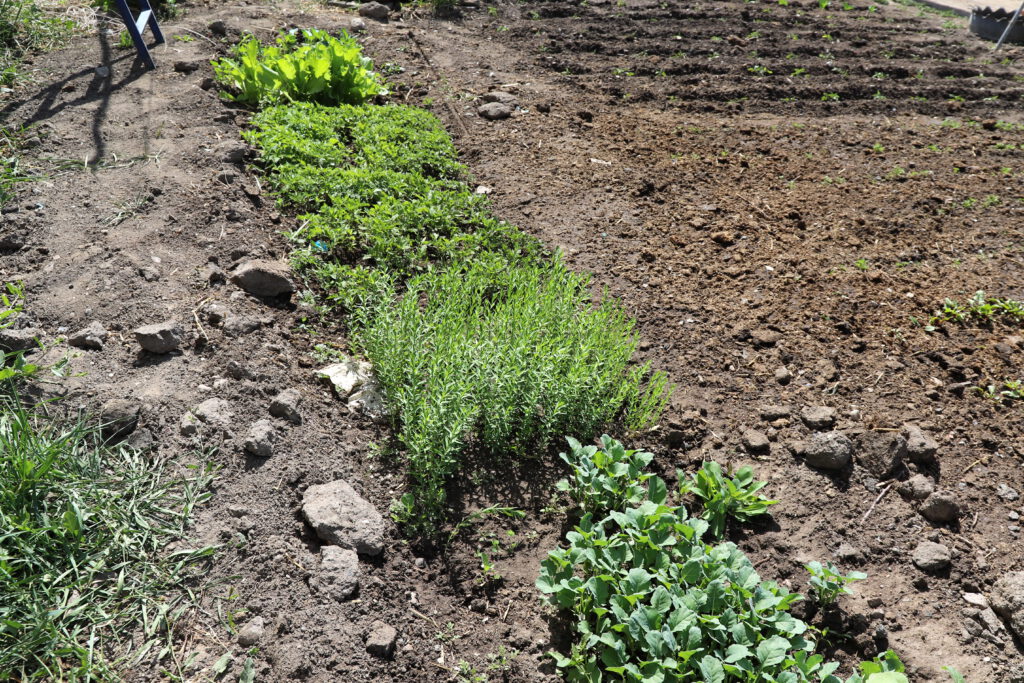
ECOSTAN: Nuraiym, I wish you and your team all the best in making permaculture popular in Kyrgyzstan for the ultimate health and wellbeing of everyone.

